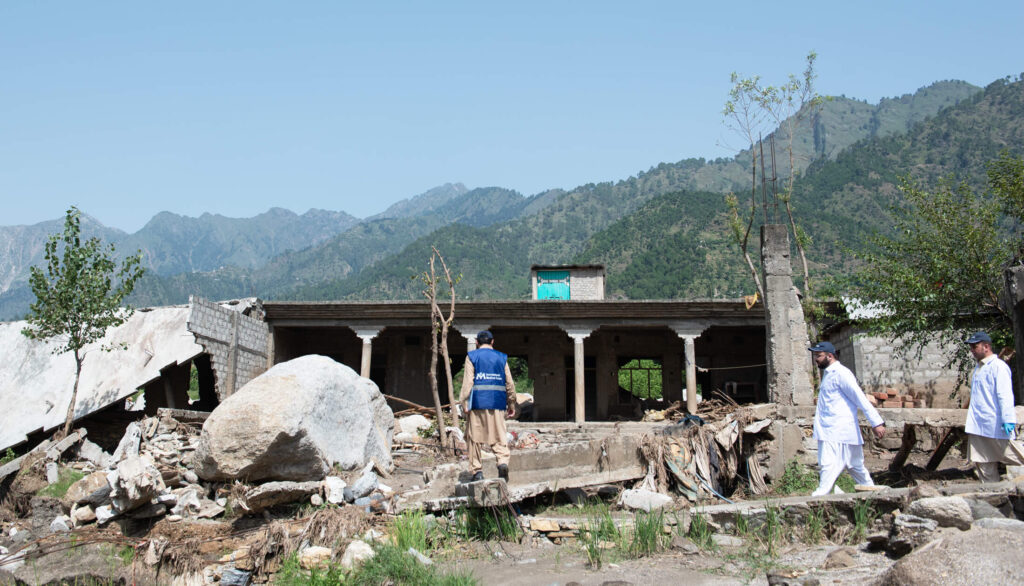Since June, catastrophic flooding in Pakistan has affected more than 6.9 million people, with some 3.5 million people forced to leave their homes. International Medical Corps launched a comprehensive response, deploying mobile medical teams to deliver essential healthcare in Shangla and Buner districts, Khyber Pakhtunkhwa province. We’re also supplying critical medicines to overwhelmed facilities, providing psychosocial support in government-led clinics and rehabilitating water systems in damaged health facilities.



“When flooding comes to Pakistan, our teams are ready to deploy,” explains Bakhtiar Ahmed, International Medical Corps’ Country Director in Pakistan. “Given our long history in the country, and working closely with the Department of Health and local partners, we’re able to quickly and efficiently conduct assessments and send critical medical assistance to flood-affected communities.”
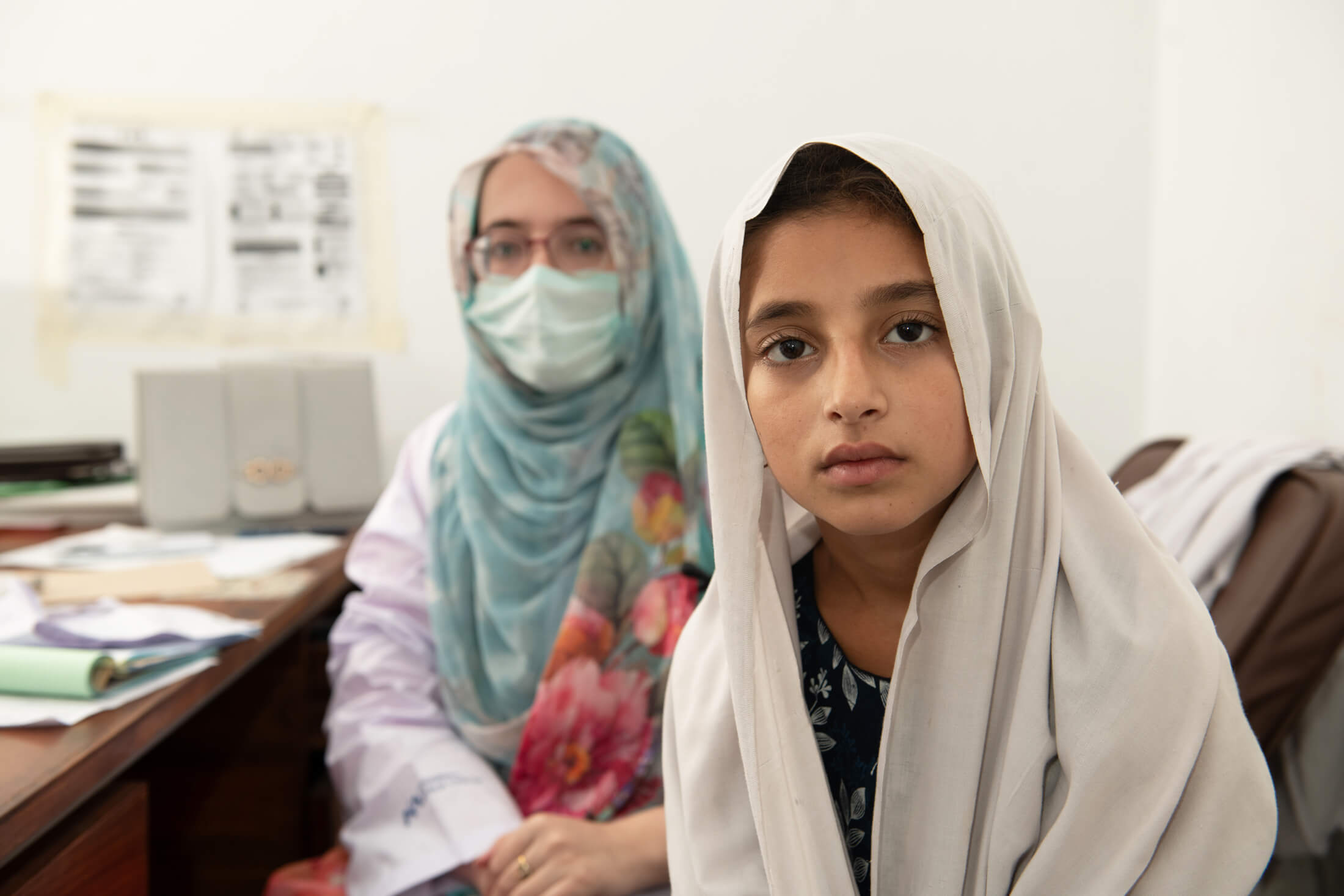
Alemat, 10, lives in Shangla district with her family. Her parents brought her to Shaheed Pir Muhammad Khan (SPMK) Category-C Hospital because she was experiencing flu-like symptoms. International Medical Corps had deployed a mobile medical team to this health facility to provide additional support for the flood-affected community, so Dr. Shahista Ibrar, Women’s Medical Officer with International Medical Corps, was able to help Alemat. Our mobile team in Buner is also providing vital health services, including medicines, to flood-affected communities.



“Previously, I worked in Charsadda during the flood response and in Attock district with Afghan refugees,” says Haji Sajjad Hussain, who is from Charsadda district. “Now, I am serving in Buner district. My duties include educating patients on the correct use of medicines as prescribed by doctors, covering proper dosage, timing and safe usage to help improve their health and well-being, and to promote healthier communities.”


Manhoor, 6, was suffering from acute bacterial pharyngitis. Her father, Zia Ul Haq, brought her to Basic Health Unit (BHU) Gokand in Buner. International Medical Corps delivers critical medicines to this health facility and has deployed a mobile team to help support the overburdened staff. Dr. Muhammad Ghufran, a doctor with Pakistan’s Department of Health who leads the team at BHU Gokand, treated Manhoor. During our needs assessment in Buner, our team also met with people whose homes were destroyed by the floods.
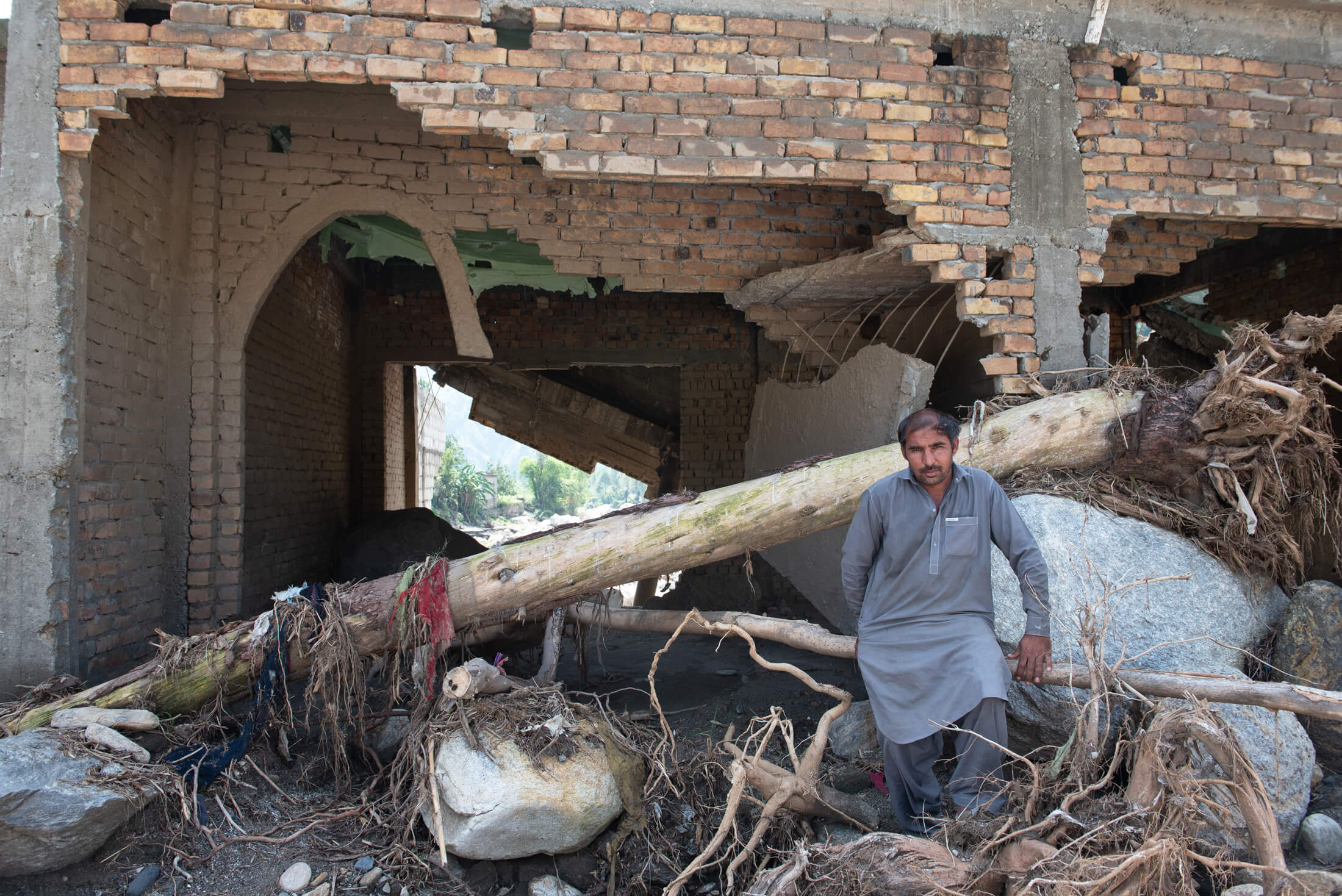
“It happened in the blink of an eye,” says Fazl il Ghani, whose home was destroyed by the flooding. His voice shook as he recalled the moment that the torrent of water, carrying massive stones and uprooted trees, destroyed everything in its path. Tragically, there were casualties in his family, adding to his immense grief. Ghani’s family, like others in their community, needs help to rebuild their lives.
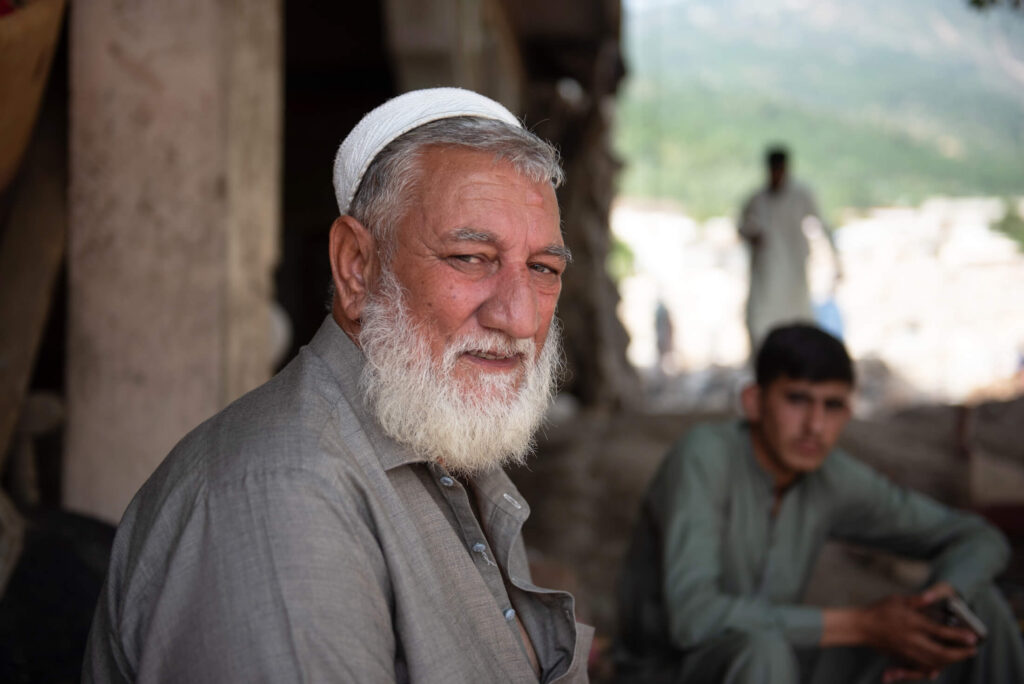
Amid the rubble of his devastated home, Farooq sits in silence, his world shattered by the loss of two loved ones. The powerful floods, laden with massive boulders and debris, swept through his village without warning, leaving a trail of destruction in its wake. Now, Farooq guards what’s left of his home, a wall-less shell left vulnerable to intrusion, as he grapples with his grief. Thankfully, our teams are there to support these communities as they transition from relief to self-reliance, including two health workers who are from Buner.


“As part of the flood response, I travel with the mobile medical team to provide medical services to women and children facing various health issues,” explains Dr. Chandrika Chandni, who originally is from Buner district. “We also educate them about hygiene, antenatal and postnatal care, and breastfeeding practices. I am grateful for this opportunity to serve my community.”
“As a dispenser in the pharmacy, my role is to serve as a bridge between the doctor and the patient, explaining the doctor’s prescriptions, the importance and effects of medicines, and their correct dosages and proper timings,” says Fazal Kabir, who is also from Buner district. “Sharing my knowledge and creating awareness among community members gives me great satisfaction.”
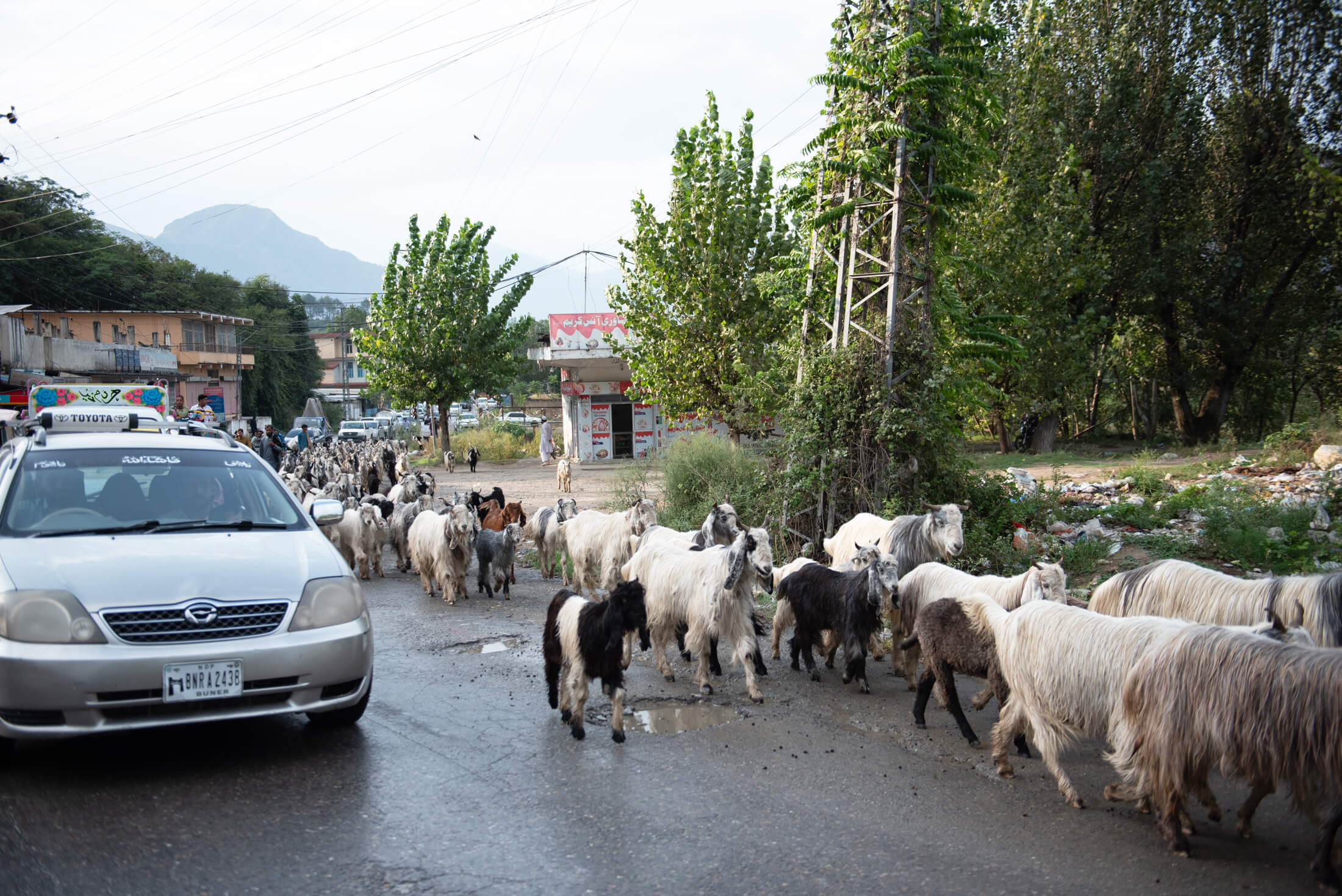
International Medical Corps has been working in Pakistan since 1985 and continues to provide lifesaving services to communities across the country, including bringing clean water to rural areas recovering from monsoon flooding. Our mobile medical teams in Buner and Shangla have so far provided more than 9,250 outpatient consultations to support flood-affected communities in both districts. Learn more about our work in Pakistan.
